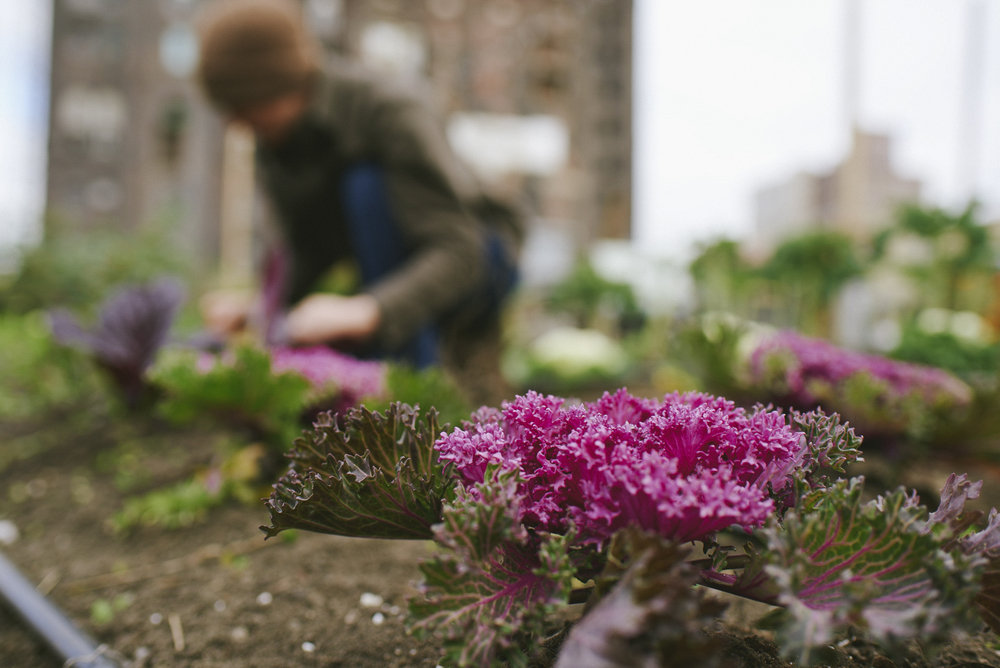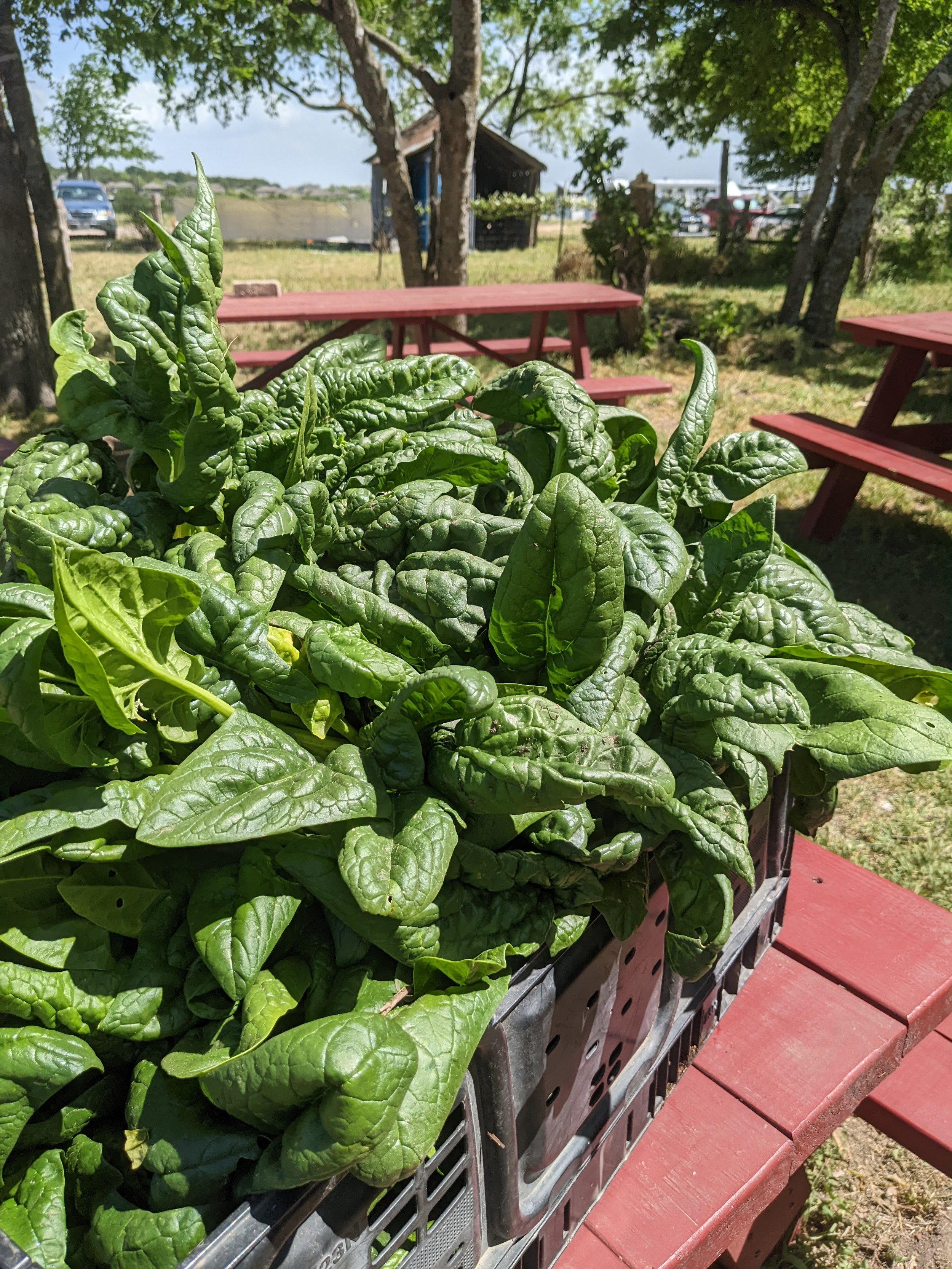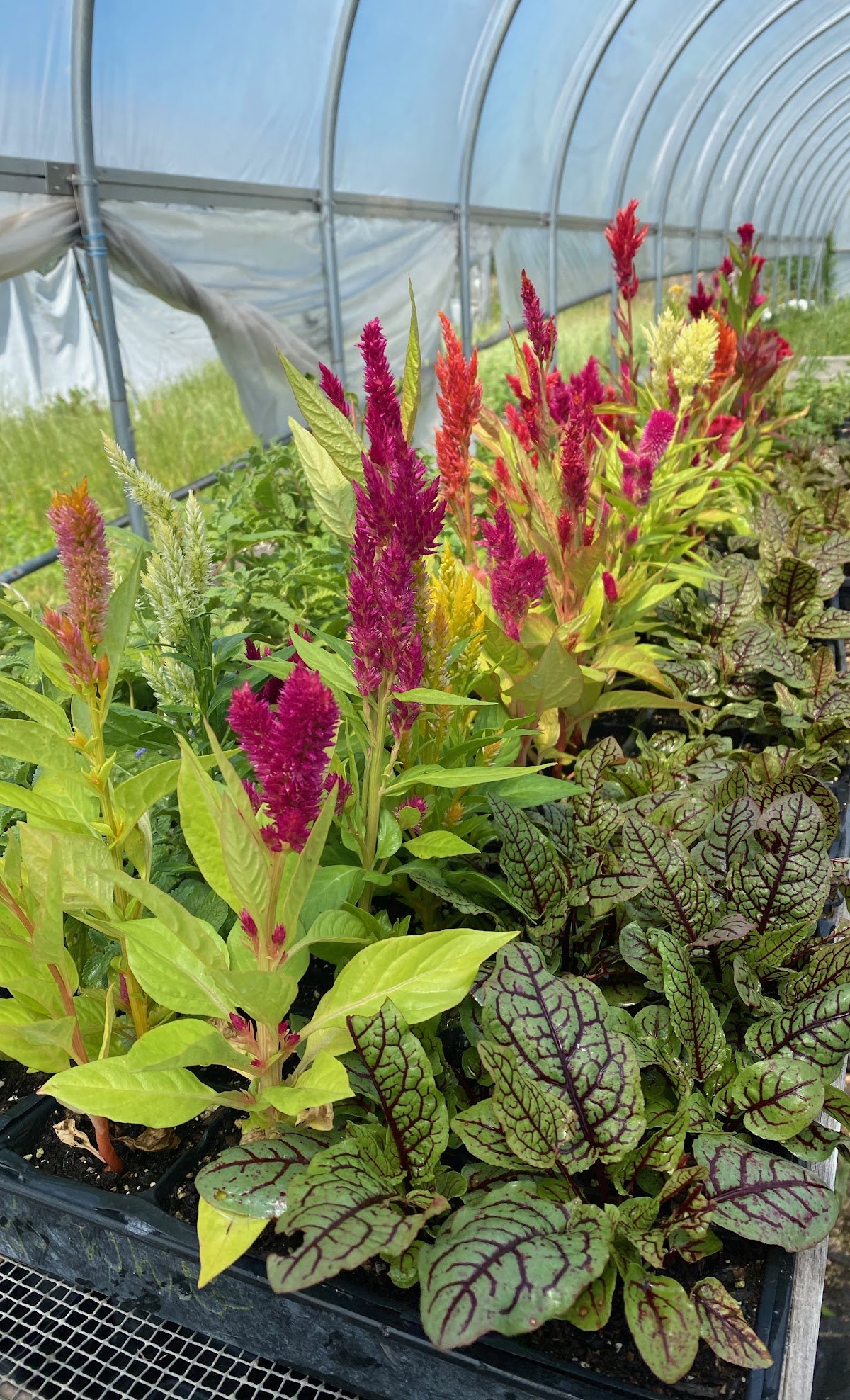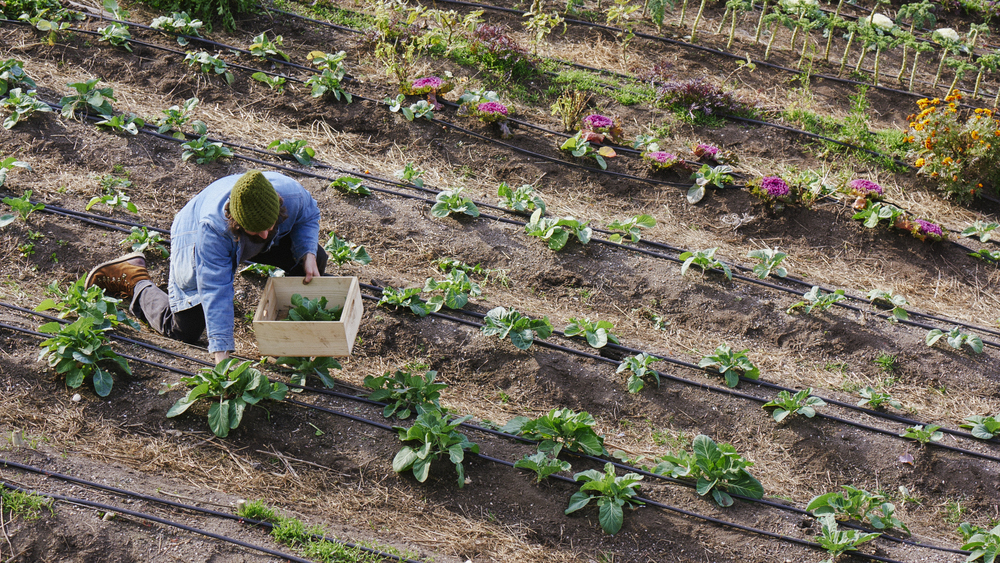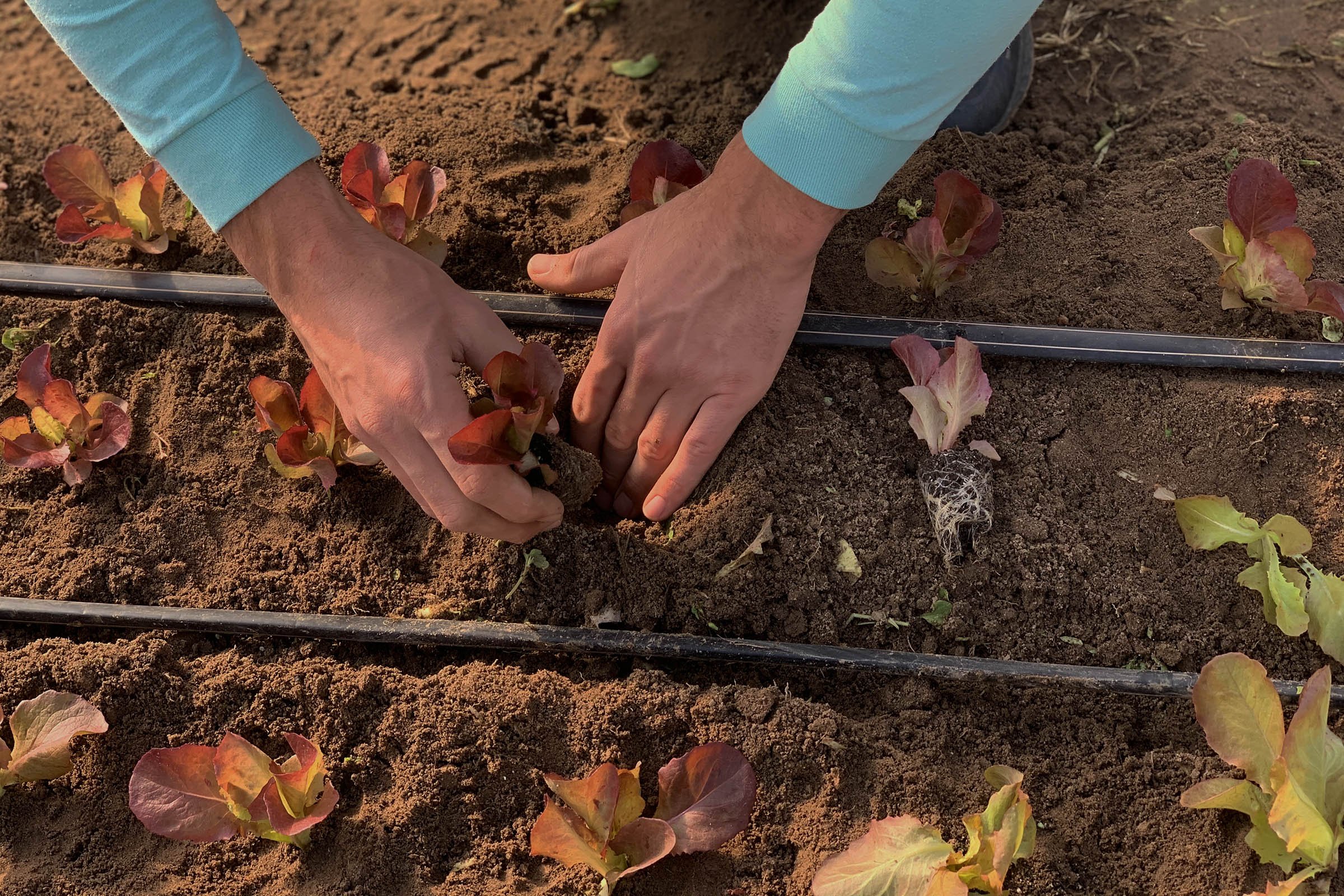
We believe farm-centered neighborhoods are the answer to many societal issues. Agrarian neighborhoods can:
Easily adapt to climate and other emergencies-During the two-year Pandemic, farmers were considered essential workers so our farm continued to operate, feeding and flowering our neighbors without interruption. Having customers living so close to the farm made food distribution and access easy.
Increase food security - When the entire state of Texas froze for the first time during 2021 Winter Storm Uri, our neighbors had a better option than empty grocery store shelves. They could walk over to the farm to shop as well as glean from our fields. After the storm, our neighbors worked with the farm to install a fruit orchard. Our goal is to offer as many food options as possible. With the construction of a new farm stand building (coming soon), we will be able to provide 24-hour access to refrigerated items like meat, dairy, veg, flowers, fruit, packaged goods and more.
Reduce loneliness - Our farm-centered community is designed with porches, pocket gardens, a Community Garden (60+ allotment plots coming soon), a farmhouse for events and a community chicken coop. Our farm partners with residents to create monthly social gatherings — Homestead Club, First Thursday Socials, Weekly Yoga, Earth Day celebrations and more — so neighbors can easily become friends.
Create a new career path for farmers - More farmers are urgently needed and farm-centered communities are a perfect place to raise a new crop of well-trained professional farmers. A well-designed agrarian neighhood ensures that farmers are more likely to succeed because they have housing, reliable markets, and land dedicated to food production. Best of all, this kind of farm improves the quality of life for farm families, who are often forced to live far from good schools and cultural opportunities due to the lack of affordable farmland.
In time, agrarian neighborhoods may help shape new opportunities for farmers, including:
Municipal farmers, who, like any other professional employees and essential workers, are paid a fair wage, receive paid vacations and benefits similar to those enjoyed by firefighters, police officers and other workers critical to the health and safety of a community.
Mentoring farmers, who are contracted to train and ensure there are a ready supply of local farmers with specialized skills that neighborhoods designed with farms often require (e.g., ecological practices, community relations, educational programming, etc.)
Preserve precious farmland - Austin is losing 17 acres of your farmland every day. Innovative methods are needed to ensure that prime farmland remains protected and productive. And that means more people who want to farm can and you don’t have to depend on shipments from Mexico or China for your next meal.
Provide daily access to beauty and nature - Happiness improves when your day begins with bird song, when fruit trees are near your doorstep, and when your landscaping feeds butterflies and other pollinators. Well-designed farm-centered communities will ensure that Austin and its violet crown remain beautiful.
Agrarian Neighborhoods/Development Supported Agriculture can transform neighborhoods — Twenty years ago, Steve and Marie were two very successful chefs intent on saving 1,400 acres of farmland south of Atlanta. They accomplished this by creating Serenbe, a development-supported agriculture neighborhood that put food production and nature first. Serenbe, features a 25-acre farm and has served as the jewel in the crown for upscale food-centered neighborhoods.
We believe the this model of combining food with where you live should be available to all. That’s why we are looking forward to the evolution of this development model: city-supported agriculture! Everyone should have the opportunity to live in well-designed, affordable neighborhoods that are resilient, beautiful and productive. Encourage your elected officials to learn more about how to integrate food and housing so policies can be created to support more neighborhoods that promote health and wellness.
Village Farm: Our East Austin Agrarian Neighborhood
For nearly 20 years our customers have told us they wished they could live on our farm. Now they can! Since 2015, we’ve been helping create Village Farm, the country’s first agrarian neighborhood of tiny homes.
Here, neighbors can walk to purchase our freshly harvested certified organic foods and flowers just steps from their front door. The developer has also set aside space for a large Community Garden (40-60 plots coming soon) and pocket gardens so residents can grow their own food, too.
Tiny Home residents are pioneers in sustainable living and, for many, that also includes making healthy lifestyle choices. In 2024, a resident-led Blue Zone initiative was formed to increase social connections and community activities. Recent happenings, including: weekly Yoga in the hayloft, cooking classes, pickeball and walking clubs, movie and game nights, pop-up Silent Discos and more. These activities are open to everyone so we encourage you to come by — volunteer on the farm, shop at farm stand, attend events — and meet our amazing neighbors.
Meet Our Neighbors
Green Gate Farms’ Interns, who work and learn on the farm each semester,
have created a series of profiles so residents can share their stories.
Lori MacAuley, Farm Volunteer Extraordinaire
by Cameron Kerr, Senior Communication Major, St. Edward’s University, 2022
When I came to Village Farm on a Tuesday afternoon to interview Lori MacAuley—my first in a series of profiles on the agrihood’s residents—I wasn’t sure what to expect. But the familiar flutter of nerves that comes with anticipating any new experience quickly dissipated as Lori opened her door and welcomed me before I even had a chance to knock. Barefoot and probably no more than 5’4, Lori wore dark, rectangular glasses framed by short, brown hair, a dark blue v-neck, and light purple shorts: clearly comfortable in her home base and full of energy.
Lori is a 60-year-old Village Farm agrihood resident, state employee, gardener, and Ayurveda adherent with a warm smile. She has been living in the agrihood for about six months, and, despite my efforts to find something to the contrary, has largely positive things to say about the experience thus far.
As we sat and talked on the reddish-cushioned bench on her shaded front patio overlooking Green Gate Farms’ east Austin location, enjoying the October afternoon sunshine and a light breeze, I could start to see why. Just eight miles from downtown, this space was quiet and serene—a reprieve from the chaos of an increasingly congested Austin. Birds chirped, distant cars passed, and a few friendly neighbors even said their hellos as they strolled by on the front sidewalk.
After a little back-and-forth gushing about the nice weather, I began by asking Lori outright why she decided to move to this community, and though much of the allure was already apparent to me, this notion was only reinforced when she replied, “as you know, Austin’s getting so expensive and difficult, so I was looking at other options, and I just loved the concept of living on the farm, sustainable living, community—I mean it’s got everything; everything you could want” . . . .
Your Historic Community Farm
1902 farmstead built by the Bergstrom family
Our farm has focused on quality food and flower production and building community since its founding in 2006. We believe the next step in this journey is creating agrarian neighborhoods, communities designed with local farmers, sustainably-minded developers, residents and builders.
Since 2015, our farm has collaborated with the City of Austin, developers, landscapers, residents and consultants to create a Village Farm, the first-of-its-kind community. Our historic farm in east Austin is a place where residents can walk to the farm for local, organic food and flowers, learn how to garden, and enjoy living a more sustainable lifestyle.
To tour new Village Farm Tiny Homes, call the sales office, 512-925-6068. Or contact www.tinyresellingcom/512-400-9867, run by Van, a Village Farm Tiny Home resident.
Hours & Location
8310 Canoga Ave.
Austin, TX 78724
Volunteer Days:*
Wednesday, Friday & Saturday
9am – 12pm
*please complete this form before coming to the farm
